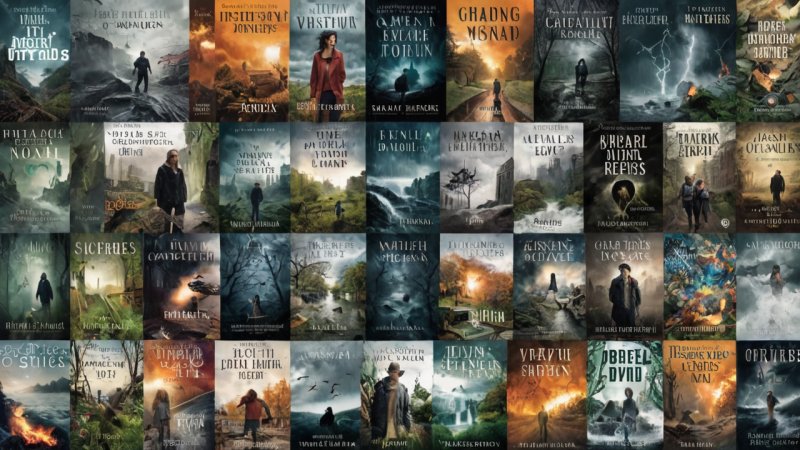As climate change increasingly shapes our world, it also influences the narratives we create and consume. The genre of mystery and thriller is no exception. With its roots in unraveling secrets and exposing truth, mystery storytelling is evolving to incorporate the pressing themes of climate change. This article explores how climate change is affecting the landscape of mystery literature, analyzing its manifestations in plot, character development, and thematic depth.
Climate Change as a Catalyst for Conflict
At its core, any mystery story thrives on conflict, and climate change presents a plethora of new conflicts for authors to explore. Whether it's a detective unraveling a murder that centers around environmental corruption, or a protagonist racing against time to prevent a natural disaster, the stakes are higher than ever.
In traditional mysteries, the motivations behind crimes are often personal or psychological. However, the urgency of climate change shifts the focus, introducing broader societal conflicts. For instance, the struggles of communities affected by rising sea levels or wildfires can serve as a backdrop for solving a crime, making the narrative not only engaging but also socially relevant.
Setting the Scene: The Changing Landscape
Climate change dramatically alters geographical and environmental settings, providing unique backdrops for mystery plots. From flooded cities to drought-stricken regions, the settings can reflect the anxieties and realities of a warming planet.
- Urban Dystopias: Cities grappling with extreme weather conditions can create a sense of claustrophobia and urgency. Authors can explore how crime rates rise in desperate environments, leading to darker tales.
- Rural Isolation: In contrast, rural settings suffering from climate impacts can highlight themes of isolation and vulnerability, as characters are cut off from help and faced with local threats.
- Natural Disasters: Events such as hurricanes or wildfires can serve as catalysts for murder mysteries, where chaos leads to the unearthing of long-buried secrets.
Characters in a Changing World
The characters in climate-themed mysteries are also evolving. Detectives and protagonists are increasingly portrayed as eco-conscious individuals who grapple with their roles within a deteriorating environment.
We are witnessing the rise of:
- The Environmental Activist: Many stories now feature protagonists who are environmental advocates, often finding themselves at odds with corporate interests or corrupt officials.
- The Reluctant Hero: Characters who initially ignore the signs of climate change or are skeptical about its implications often evolve throughout the story, reflecting real-world attitudes towards environmentalism.
- The Community Defender: Often set in small towns facing climate-related threats, these characters take it upon themselves to protect their homes and loved ones, leading to confrontations with external forces.
Thematic Depth: Morality and Responsibility
Climate change introduces complex ethical dilemmas that enrich the narrative fabric of mystery stories. It raises questions about accountability and the moral implications of individual actions in the face of collective crises.
For example:
- Corporate Greed: Many mysteries delve into the corrupt practices of corporations that contribute to climate change, showcasing the consequences of prioritizing profit over environmental stewardship.
- Community vs. Individual: The tension between the needs of the community and personal desires can create compelling plotlines, forcing characters to choose sides in conflicts driven by environmental degradation.
Case Studies: Notable Works
Several authors have already begun to weave climate change into their narratives, demonstrating the potential of this theme within the genre.
- “The Overstory” by Richard Powers: While primarily a literary novel, it incorporates elements of mystery as characters’ lives intertwine with environmental disasters, showcasing the interconnectedness of humanity and nature.
- “The Water Knife” by Paolo Bacigalupi: This thriller set in a drought-ridden future explores the dark side of water politics, blending the mystery genre with pressing climate issues.
- “The Last Thing He Told Me” by Laura Dave: This suspenseful novel touches on climate change indirectly, as the protagonist unravels the layers of her husband's past and its connections to environmental corruption.
Literary Trends: The Rise of Eco-Thrillers
Eco-thrillers are becoming a distinct sub-genre within mystery storytelling, where the plot revolves around environmental themes. These narratives often feature an element of suspense or danger, compelling readers to consider the implications of climate change alongside their enjoyment of a thrilling story.
This trend indicates a shift in reader interests, with audiences seeking not only entertainment but also narratives that reflect their concerns about the planet. Authors are responding to this demand, creating stories that are not only engaging but also provoke thought about the future of our environment.
Conclusion: The Future of Mystery and Climate Change
As climate change continues to impact our world, its influence on mystery storytelling is undeniable. The genre is adapting, incorporating new conflicts, settings, and characters that reflect the complexities of a changing environment. Authors are not just telling stories; they are engaging readers in a dialogue about the challenges we face as a society.
Through the lens of mystery and thriller, literature can shed light on the urgent issues surrounding climate change, encouraging readers to reflect on their own roles and responsibilities. The evolution of this genre serves as a reminder that storytelling is a powerful tool for raising awareness and inspiring action in the face of one of the most pressing challenges of our time.






